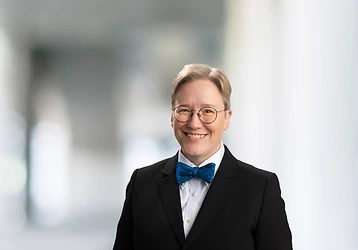Senate Hearing on Connected Cars: Be On the Look-Out for Legislation; Standards-Setting Bodies Offer Industry Opportunities to Shape the Future of Automotive Regulation
Senate Hearing on Connected Cars: Be On the Look-Out for Legislation; Standards-Setting Bodies Offer Industry Opportunities to Shape the Future of Automotive Regulation
A day after issuing a set of bipartisan principles for self-driving vehicles legislation, the Senate Committee on Commerce, Science, and Transportation on Wednesday held a hearing entitled, “Paving the Way for Self-Driving Vehicles,” where the panel heard testimony from representatives of automotive OEMs, developers of artificial intelligence, the American Center for Mobility, and Mothers Against Drunk Driving. The Chairman gave no formal timetable for committee action but members and staff have indicated an intention to move quickly with a bill that could be ready for introduction later this summer.
Bipartisan Principles for Self-Driving Legislation
The hearing reinforced many of the priorities signaled in the principles, which were put forth by the Committee’s Chairman, John Thune (R-SD), Gary Peters (D-MI.), and ranking minority member, Bill Nelson (D-FL). These principles include a commitment to:
- Prioritize Safety: Federal Motor Vehicle Safety Standards (FMVSS) will remain important to vehicle safety whether a car is self-driving or not. Legislation must recognize that new safety standards will need to be developed for these technologies.
- Promote Continued Innovation and Reduce Existing Roadblocks: Current regulations do not directly address self-driving vehicles. It will take significant time to develop new regulations; therefore, legislation must allow the life-saving safety benefits of self-driving technology to move forward as standards development is underway.
- Remain Tech Neutral: Self-driving vehicles will take different forms, use diverse technologies, serve consumers with varying capability levels, and follow multiple business models. Legislation must be technology neutral and avoid favoring any particular approach.
- Reinforce Separate Federal and State Roles: Traditionally, the federal government has regulated the vehicle itself, while states have regulated driver behavior. Legislation must clarify the responsibilities of federal and state regulators to protect the public and prevent conflicting laws and rules from stifling this new technology.
- Strengthen Cybersecurity: Cybersecurity must be a top priority for suppliers and manufacturers. Legislation must address the connectivity of self-driving vehicles and potential cybersecurity threat vectors before problems arise.
- Educate the Public to Encourage Responsible Adoption of Self-Driving Vehicles: Consumer education will be critical to long term adoption of driverless cars. Legislation must review consumer education models for self-driving vehicles and address how companies can inform the public on what self-driving vehicles can and cannot do based on their level of automation and their individual capabilities.
Impact on Aftermarket Suppliers
Senators and panelists generally did not discuss aftermarket connected and autonomous technologies. The only reference came from the Alliance of Automobile Manufacturers President and CEO Mitch Bainwol, who stated, “OEMs would like to be protected from aftermarket adjustments to the vehicle.” This approach highlights the importance of ensuring that the voice of aftermarket suppliers is heard and that any risks inherent in those technologies are addressed.
Join the Work of Standards Organizations & Help Shape the Future of Your Industry
The hearing made clear the importance of voluntary standards development being undertaken by the Society of Automotive Engineers (SAE International), the Institute of Electrical and Electronics Engineers (IEEE), and other industry organizations. It is important for companies in the industry to encourage engineers and other technical personnel to participate in these standards organizations.
The regulatory environment for autonomous and connected vehicles is rapidly changing. Butzel Long will continue to analyze the evolving legal and regulatory framework. As driverless vehicle legislation and regulations are drafted and debated, turn to your Butzel attorneys for updates and analysis.
Leslie Glick
202.454.2839
Jennifer Dukarski
734.213.3427











